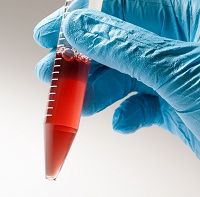Placenta Cells Safe for Multiple Sclerosis Patients
Doses of prepared human placenta culture cells are safe for multiple sclerosis patients, according to a study published in Multiple Sclerosis and Related Disorders.

Human placental tissue is safe for patients with multiple sclerosis (MS), according to a study published in Multiple Sclerosis and Related Disorders.
Researchers from Mount Sinai examined 16 patients with MS aged 18 to 65 years. Ten patients enrolled had the epidemic disorder relapsing-remitting MS (RRMS) and 6 had the chronic secondary progressive MS (SPMS). The study was designed to taste the safety and efficacy of a preparation of cultured cells known as PDA-001. The cells resemble mesenchymal stromal stem cells which can be found in many tissues of the body. Typically, one donor is enough to supply many patients because of the abundance.
“This is the first time placenta-derived cells have been tested as a possible therapy for multiple sclerosis,” Fred Lublin, MD, the study’s lead investigator said in a press release. “The next step will be to study larger numbers of MS patients to assess efficacy of the cells, but we could be looking at a new frontier in treatment for the disease.”
A total of 6 participants were given a high dose of PDA-001 (600×106 cells), 6 were given a low dose (150×106 cells), and 4 were given a placebo treatment. All patients were given 2 doses spread apart by one week. However, Lublin noted that any change in the immune system, by experimental treatment for example, could cause MS to worsen in patients. Over a 6-month period, all patients were administered monthly brain scans to ensure no new brain lesions developed. After 12 months, no patients showed worsening MS on magnetic resonance imaging scans, and the majority of participants showed improved levels of disability.
PDA-001 comes from full-term human placenta and is a new approach for the treatment of MS. No new patients met Cutter’s rule — which is defined as ≥5 new gadolinium lesions on 2 consecutive scans. Only one patient on the high dose regimen had a flare up after 5 months, but no other patients showed increases in the Expanded Disability Status Scale score >0.5. Most had decreasing Expanded Disability Status Scale scores.
“We’re hoping to learn more about how placental stromal cells contribute to myelin repair,” Lublin continued in the statement. “We suspect they either convert to a myelin making cell, or they enhance the environment of the area where the damage is to allow for natural repair. Our long-term goal is to develop strategies to facilitate repair of the damaged nervous system.”
Side effects of the treatment included headache, fatigue, infusion site reactions, and urinary tract infections. One patient experienced a grade 1 anaphylactoid reaction and another had grade 2 superficial thrombophlebitis.
“PDA-001 infusions were safe and well tolerated in relapsing-remitting multiple sclerosis and secondary progressive multiple sclerosis patients,” the authors conclude. “No paradoxical worsening of lesion counts was noted with either dose.”